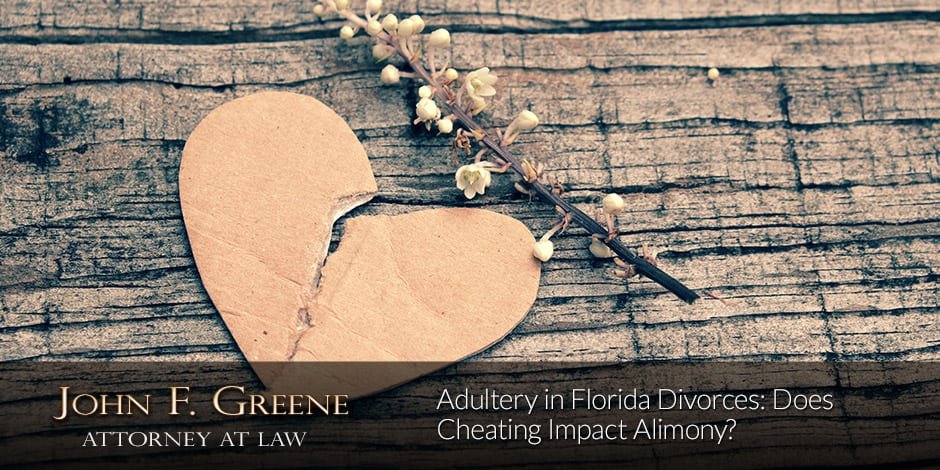
Every year, hundreds of thousands of couples split due to infidelity. A notable Gallup poll revealed that just three in ten spouses would forgive their partner for cheating; most view adultery as cause for divorce.
Cheating may spark numerous divorces, but its implications for the actual dissolution process may be limited. For example, adultery may not factor into property division or alimony awards. This is particularly common in no-fault divorce states such as Florida — but exceptions exist. Read on to learn how courts account for adultery in Florida divorces when determining appropriate alimony awards:
Florida grounds for divorce: No mention of adultery
Florida maintains just two valid grounds for divorce: an irreparable breakdown of the relationship or mental incapacity. Significant restrictions are placed on incapacity as grounds for divorce; it’s only valid if one of the spouses has been declared incapacitated for at least three years.
Local restrictions on grounds for divorce limit the extent to which infidelity can play a role in Florida divorces. In some states (such as Georgia), spouses can file for divorce on the grounds of adultery; this can carry significant implications for alimony, child custody, and more.
Adultery and alimony in a no-fault state
In Florida, alimony is strictly financial. It cannot be ‘earned’ with good behavior, nor can it serve as punishment for spouses who behave ‘badly’ while married. Under Florida’s no-fault approach to divorce, alimony is only awarded if there is a clear need for it by one spouse — and if the other has the ability to pay.
Alimony is not used to punish unfaithful spouses. If an affair lacks financial implications, it will not factor into the final alimony decision.
The Exception: When adultery impacts alimony
When determining alimony, Florida courts examine each couple’s circumstances carefully; no set formula can be called upon to definitively calculate alimony awards. Factors such as marriage length, income, and employability are of chief concern. Courts may award rehabilitative or bridge-the-gap alimony to help struggling spouses adjust to single life.
Due to alimony’s status as strictly economic, infidelity that impacts a Florida couple’s finances can also affect alimony upon divorce. If one spouse was financially harmed by the other’s excessive spending in a non-marital relationship, the non-cheating spouse may receive (or be spared from paying) additional alimony.
For alimony to be impacted, the non-cheating spouse must demonstrate that his or her ex deliberately used marital funds to support the affair — without the non-cheating spouse’s awareness or permission. Furthermore, evidence must indicate that the affair-related use of marital funds financially harmed the non-cheating spouse.
Alimony and adultery: The importance of working with a skilled attorney
Adultery-related alimony may not be out of the question in Florida, but it can be uniquely challenging to obtain. It is critical to work with a family lawyer who thoroughly understands the complexities of local divorce procedure. Your attorney can help you demonstrate the financial implications of adultery in your divorce — and achieve a desirable legal outcome.
If you’re in the midst of divorce in Destin or along the Emerald Coast, look to Attorney John Greene for effective representation. A passionate divorce lawyer, he’ll guide you through every step of the legal process. Call 850-424-6833 today or reach out online to schedule a case consultation.










